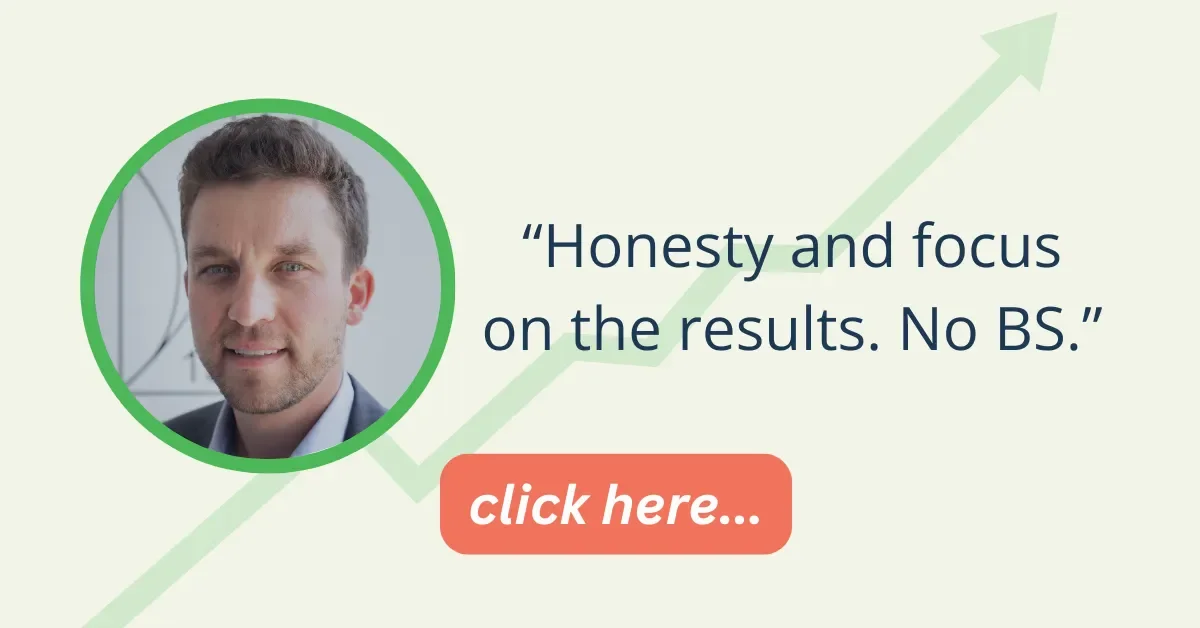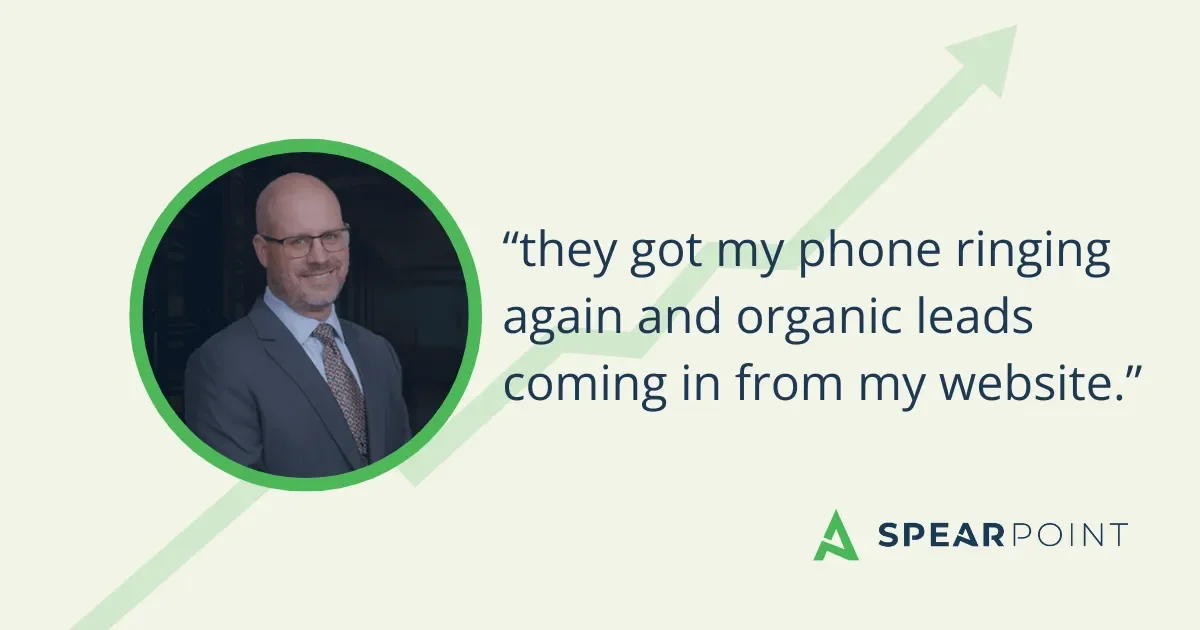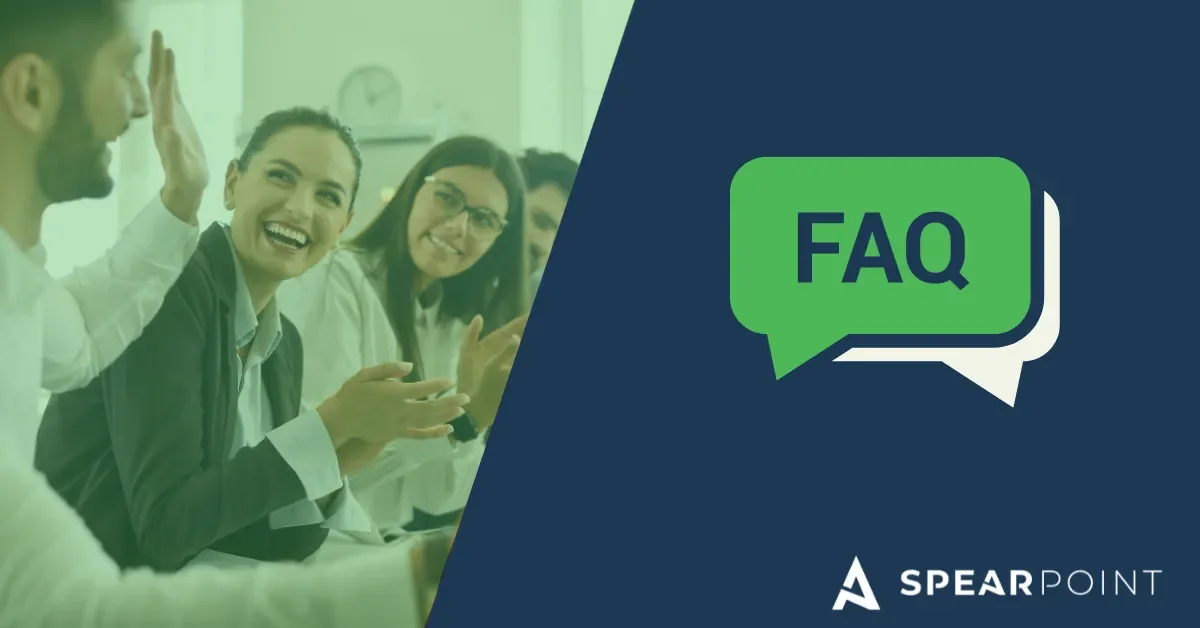Brands Win: How to Build a Brand that Dominates SEO + GEO
Google doesn’t reward websites.
AI doesn’t reward “content.”
They reward brands people can trust.
That’s the real game in SEO and GEO (local search). If you’re still chasing keyword hacks or obsessing over blog word counts, you’re playing checkers while your competitors are playing chess.
The future of search isn’t about “being optimized.” It’s about being the obvious, trusted choice.
So let’s break down why the game changed—and then I’ll give you the playbook to dominate.
Also Read:
5 Key Takeaways
Brands beat websites. Google and AI assistants reward trusted brands, not just optimized pages.
Local prominence matters. Reviews, PR, and mentions build the authority that gets you into the Map Pack.
Consistency wins. From your website to your citations, schema, and social profiles—aligned signals build trust.
Thought leadership drives demand. Content, podcasts, and partnerships create the branded searches and mentions Google loves.
Measure what matters. Track visibility, reviews, authority, entity health, demand, and conversions—not vanity metrics.
TL;DR
If you want to dominate SEO + GEO, stop thinking like an SEO and start thinking like a brand. That means building a website people trust, earning authority through PR and partnerships, showing up consistently across the web, and driving real trust signals like reviews and local visibility. Brands that are known, trusted, and talked about win—every time.
Table of Contents Show
A SEO Agency Partner is
MORE Affordable than you think.
Discover how Our Customers Grow Their Brands, Outshine Competitors, and Attract New Business
Brand SEO vs. Website SEO: Why the Game Changed
There was a time when ranking on Google was simple: write a page with the right keywords, build some backlinks, and boom—you’re on Page 1. That’s not the world we live in anymore.
Now, search is about entities. Google and AI assistants don’t just want pages—they want brands. They look at your entire digital footprint: your website, reviews, mentions, social profiles, press, and partnerships.
Here’s why that matters:
E-E-A-T is baked in. Google emphasizes “Experience, Expertise, Authoritativeness, and Trustworthiness.” Translation: they want trusted brands, not just optimized pages.
Local SEO is prominence-driven. The algorithm is relevance + distance + prominence. You can’t move your building closer to customers, but you can build your prominence—reviews, press, and authority that make you the obvious choice.
AI assistants pull from trusted brands. With Google AI Overviews and ChatGPT surfacing answers, only the strongest brands make it in. Thin content and weak signals don’t stand a chance.
In short: your website alone isn’t enough. The winners are brands that show up consistently, everywhere, with signals that scream trust.
Summary: 10 Step SEO & GEO Playbook
Build an Awesome Website
Domain Authority with Backlinks and PR
Put Your Brand on Other Sites
Generate Reviews Consistently
Own Your Social Media Real Estate
Consistency Everywhere (NAP + Schema)
Thought Leadership at Scale
Partnerships & Collaborations
Local PR & Community Footprint
Content That Actually Helps
Brand SEO & GEO Playbook: 10 Steps to Building a Brand That Wins
Here’s the brand-first playbook for dominating search in 2025 and beyond. Each step is practical, example-driven, and rooted in brand building—not SEO hacks.
1. Build an Awesome Website That Inspires Trust
Your website isn’t just a digital business card—it’s your first trust test. Google looks at user signals (bounce rates, engagement, conversions), and customers decide in seconds whether you feel legit or sketchy. A clunky or confusing site tanks both.
Why It’s Important to SEO & GEO: A trustworthy site improves engagement signals, builds relevance with well-structured pages, and makes you the obvious local choice. Search engines reward sites people stay on and convert from.
What to do:
Make it fast (mobile-first is non-negotiable).
Put your offer front and center—don’t make visitors dig.
Showcase proof: reviews, awards, certifications, team bios.
Create separate, well-structured service pages instead of dumping everything on one page.
Example: A personal training gym with one generic “Services” page leaves prospects guessing. A better setup? Separate pages for Group Classes, Personal Training, and Nutrition Coaching, each with client success stories and pricing clarity. That structure builds trust, helps rankings, and converts browsers into buyers.
~ Your website is the home base of your brand. If it doesn’t scream credibility, nothing else in this playbook will matter.
2. Earn Real Authority Through PR & Backlinks
Backlinks aren’t dead—they’re just misunderstood. Google doesn’t care about a number (like Moz’s Domain Authority). It cares about where you’re mentioned and whether those mentions are credible.
Why It’s Important to SEO & GEO: High-quality mentions boost domain authority in practice (even if it’s not a direct ranking factor), send referral traffic, and establish prominence in local markets.
What to do:
Focus on quality over quantity. One backlink from a local news site beats 50 from junk blogs.
Use PR: announce launches, partnerships, or events that local media will pick up.
Pitch guest articles to industry blogs.
Be a source for journalists (HARO, Qwoted, local reporters).
Example: A dentist quoted in the city’s lifestyle magazine about whitening trends earns a backlink, a press mention, and real visibility. That’s the kind of authority Google trusts—and patients do too.
~ Authority isn’t about gaming metrics. It’s about being so credible that others want to reference you.
3. Put Your Brand on Other Sites
Google doesn’t only check your site—it checks if you exist across the web. If you’re only visible in one place, you look fragile. If you’re everywhere, you look established.
Why It’s Important to SEO & GEO: Consistent brand mentions across trusted sites strengthen Google’s entity recognition. This helps you rank in Maps and improves how confidently AI assistants surface your business.
What to do:
Get listed in general directories (Yelp, Yellow Pages).
Add niche directories (Avvo for lawyers, ClassPass for gyms).
Seek community mentions (local chambers, nonprofit sponsors).
If notable, pursue a Wikipedia entry.
Example: A law firm listed on Avvo, the local bar association’s website, the chamber of commerce, and quoted in a local newspaper looks 10x more legitimate than the firm that only has a website.
~ Prominence = being recognized beyond your own home turf. That’s what builds brand gravity.
4. Reviews: Your Reputation Engine
Reviews do double-duty: they’re a local ranking factor and the #1 decision-making trigger for customers. Google has said outright that more reviews and positive ratings can improve local visibility.
Why It’s Important to SEO & GEO: Reviews directly influence your Map Pack ranking and conversion rate. They’re one of the strongest trust signals Google uses to measure “prominence.”
What to do:
Ask consistently. Build it into your process.
Don’t chase volume spikes—steady growth is stronger.
Reply to every review (Google notices, customers appreciate).
Showcase reviews on your website too.
Example: A gym with 200 reviews but none since 2022 looks inactive. A smaller competitor with 60 reviews but five fresh ones every month looks active, engaged, and trustworthy. Guess who gets the click?
~ Reviews = proof of trust. They’re the digital word-of-mouth that powers both SEO and conversions.
5. Own Your Social Real Estate
Social media may not be a direct ranking factor, but it’s brand hygiene. When someone Googles you, your social profiles often take up multiple slots on Page 1.
Why It’s Important to SEO & GEO: Social profiles often rank for branded searches and feed Google’s Knowledge Graph. Active profiles build trust signals and make your brand more “visible” across the ecosystem.
What to do:
Keep core profiles active: LinkedIn, Facebook, YouTube, Instagram.
Post regularly—updates, photos, behind-the-scenes.
Use consistent branding (same logos, colors, tone).
Link your profiles back to your website and GBP.
Example: A martial arts school with an active Facebook (event photos), a YouTube channel (training tips), and a LinkedIn page (community updates) looks alive. A competitor with only a dusty website? They look invisible.
~ Social presence doesn’t just build community—it reinforces brand legitimacy across search.
6. Consistency Everywhere (NAP + Schema)
Inconsistencies confuse both people and algorithms. If Google sees your business listed as “123 Main St.” in one place and “123 Main Street” in another, it’s a small crack in your brand foundation. Enough cracks = lost trust.
Why It’s Important to SEO & GEO: Clean data and schema markup make it easier for Google to confirm your entity and match you confidently to local searches. Consistency = rankings.
What to do:
Audit your Name, Address, Phone (NAP) across directories. Fix errors.
Use structured data (schema) on your site to reinforce the correct info.
Add sameAs markup to tie your website to your verified social profiles.
Example: A restaurant with different phone numbers on Yelp and Google creates confusion. A competitor with perfectly consistent NAP everywhere and schema markup in place? They’ll dominate the local pack.
~ Think of this as “brand alignment.” The tighter it is, the stronger the signal.
7. Thought Leadership at Scale
If you want to be the expert in your market, you can’t stay quiet. Authority is earned by showing up consistently with insights that matter.
Why It’s Important to SEO & GEO: Thought leadership creates branded searches, natural backlinks, and mentions—all signals of authority. It tells Google, “this isn’t just a business, it’s a trusted expert.”
What to do:
Publish guides and answers to FAQs on your site.
Post regularly on LinkedIn with your perspective.
Repurpose insights into podcasts, videos, and talks.
Guest blog on sites your audience reads.
Example: A chiropractor writes “The 3 Mistakes Runners Make That Lead to Injury.” They share it on LinkedIn, turn it into a YouTube video, and speak about it at a local running club. That’s multi-channel thought leadership that positions them as the authority.
~ The more platforms you’re visible on, the more Google and customers associate you with expertise.
8. Partnerships & Collaborations
Brands don’t grow in isolation. Authority compounds when other credible people or businesses validate you.
Why It’s Important to SEO & GEO: Co-signs from other brands strengthen authority, generate links, and increase brand mentions—boosting your entity prominence and credibility in local search.
What to do:
Co-host workshops or webinars.
Sponsor local events or nonprofits.
Team up with complementary businesses for cross-promotion.
Collaborate with niche influencers.
Example: A yoga studio partners with a nutritionist for a “Wellness Reset Weekend.” They both earn press coverage, backlinks from event listings, and social buzz from attendees. That single partnership builds community and credibility for both.
~ Partnerships are trust multipliers. They tell both people and algorithms: “Other experts vouch for this brand.”
9. Local PR & Community Footprint
Google mirrors real life. If your community knows you, search engines will reflect that.
Why It’s Important to SEO & GEO: Press mentions, local sponsorships, and community coverage create backlinks and citations that directly boost local prominence signals.
What to do:
Issue press releases when you launch something new.
Sponsor local events—get your name on their websites.
Offer expert commentary to local journalists.
Get involved with schools, charities, or city initiatives.
Example: A martial arts school sponsors the city’s annual 5K. Their name shows up on the race website, in the local paper’s event recap, and across participants’ social posts. That’s offline authority feeding online prominence.
~ PR isn’t just vanity. It’s prominence fuel.
10. Content That Actually Helps
Content isn’t dead—it’s just evolving. AI assistants and Google’s AI Overviews pull from genuinely helpful resources, not fluff.
Why It’s Important to SEO & GEO: Helpful content builds topical authority, earns backlinks, and increases your chances of being featured in Google AI Overviews or surfaced in AI assistants.
What to do:
Publish how-to guides that solve customer problems.
Create checklists people can save and share.
Write case studies that show results.
Produce content in multiple formats (blogs, videos, infographics).
Example: A Pilates studio publishes “5 Stretches Every Desk Worker Should Do Daily.” Office workers bookmark it. Local bloggers link to it. Maybe a journalist cites it. That one article drives links, traffic, and AI visibility.
~ Content should serve as your “proof library”—a resource people (and algorithms) can’t ignore.
GEO Scoring Tool - In Development
Measurement: A Brand-for-SEO Scorecard
You can’t improve what you don’t measure. Too many businesses chase vanity metrics like “traffic” or “keyword count” and miss what actually moves the needle. If your goal is to build a brand that dominates SEO and GEO, you need to track the signals that Google and AI assistants actually care about: visibility, trust, authority, and demand.
Think of this as your brand scorecard for SEO + GEO.
Local visibility
Are you showing up in the Google Map Pack for your most important searches? And not just once—consistently, across devices, times of day, and proximity. Local visibility is the scoreboard that tells you whether you’re competing in your market or invisible.
Trust signals
How many new reviews are you getting every month? What’s your average rating? And are you responding to reviews (because customers and Google both notice)? Reviews are your reputation in measurable form.
Authority
Track new backlinks and mentions from credible places: local press, .edu, .gov, and nonprofit sites. One link from your chamber of commerce or city newspaper carries more weight than 50 spammy blog comments. This shows you’re recognized outside your own walls.
Entity health
Is your schema markup live and clean? Do your sameAs tags connect your site to your verified social profiles? Do you have a knowledge panel for your brand? These signals help Google’s entity recognition—making it confident that you are who you say you are.
Demand
Are branded searches (people Googling your business name) growing? This is one of the most underrated metrics in SEO. If more people are searching for you specifically, it means your brand is winning awareness and trust.
Content quality
Traffic is nice, but it’s not the game. Are your blogs, guides, or videos generating leads, calls, or new customers? Helpful, structured content should do more than fill a page—it should drive action.
Why this matters: This scorecard gives you a way to measure brand strength in SEO, not just page rankings. If these numbers are trending up, your brand signals are getting stronger—and SEO + GEO dominance is just the natural outcome.
“A 90-day plan is the difference between progress and chaos. Do the work, measure results, and then reset with another sprint. Skip this discipline and you’ll make growth 10x harder than it needs to be.”
90-Day Action Plan
Most businesses overcomplicate SEO. They chase 20 different strategies at once, get overwhelmed, and end up with half-finished projects that move nothing forward. You don’t need 50 moving parts—you need focus.
Here’s a 90-day sprint that gets real results. Think of it as the “minimum viable brand-building system” to put your business on the SEO + GEO map.
Weeks 1–2: Strengthen the Foundation
Your first two weeks should focus on cleaning up the basics so every future effort builds on solid ground.
Google Business Profile Overhaul: Make sure your GBP is 100% complete. Add categories, services, photos, hours, FAQs, and products if applicable. This is your storefront in Google Maps—treat it like it matters.
Citation Cleanup: Run an audit of your business listings across the web. If your address is wrong on Yelp, your phone number is outdated on Yellow Pages, or your Facebook says “Open 24/7” when you’re not, fix it. Inconsistency kills trust.
Schema Markup: Add LocalBusiness and Organization schema to your site. This helps Google connect your business details, website, and social profiles. Think of it like giving search engines a business card with all the right info.
Why it matters: If your foundation is messy, you’re sending mixed signals. Week 1–2 is about making sure every “data source” agrees you’re a real, trustworthy business.
Weeks 3–6: Build Proof + Visibility
Now that your foundation is set, it’s time to start sending out stronger trust signals.
Launch a Review System: Train your team to ask for reviews at the right time—after a successful session, a purchase, or a solved problem. Automate reminders where possible. And don’t just collect reviews—reply to every single one.
Publish 2–3 High-Intent Service Pages: Focus on money pages that attract buyers, not just traffic. A law firm might create “Car Accident Lawyer in Portland,” a gym might add “Small Group Fitness Classes,” and a dentist might add “Cosmetic Dentistry Services.” Make these pages meaty, unique, and full of trust builders.
Create One Local Case Study: Showcase proof. Tell the story of a real customer in your city, include quotes, photos (with permission), and results. This works as both a sales asset and a local SEO booster.
Why it matters: In Weeks 3–6, you’re not just fixing things—you’re actively creating evidence that builds authority and improves conversions.
Weeks 7–12: Expand Reach + Authority
The final push is about getting your brand talked about outside your own platforms.
PR Sprint: Issue a press release about a new service, expansion, or community event. Pitch yourself to podcasts in your industry. Reach out to a local reporter with a relevant story angle. These don’t just build awareness—they create backlinks and mentions that Google notices.
Local Event or Sponsorship: Partner with a charity run, a school fundraiser, or host a workshop. Make sure your brand gets listed on their websites and covered in local publications. These are gold for building “prominence” in local search.
Add 1–2 Legit Service-Area Pages: If you serve multiple cities, create unique, valuable pages for each. No cookie-cutter templates—each page should feel like it was written for that community. Include local proof (photos, testimonials, maps, or stats).
Why it matters: In Weeks 7–12, you’re expanding beyond your own site and profiles. You’re becoming visible in the ecosystem your customers (and Google) trust.
By the end of 90 days, you’ll have:
A bulletproof GBP.
Clean, consistent business info across the web.
A review engine running on autopilot.
Service pages that actually drive sales.
A local proof asset to show credibility.
Press mentions, backlinks, and community presence.
That’s how you build a brand that dominates SEO + GEO.
Struggling with SEO & GEO?
Discover How SpearPoint Grows Brands—and Drives Conversions
Pitfalls to Avoid
Every industry has shortcuts that look tempting but blow up in your face later. SEO is no different. If you want to build a brand that lasts, avoid these traps:
Obsessing Over “Domain Authority”
Domain Authority (DA) is a Moz metric. Google has said many times they don’t use it. Stop chasing DA like it’s gospel. Focus instead on real authority: getting mentioned in places your customers and community actually trust.
Better play: Land one article in your city’s newspaper or a trusted industry blog. That moves the needle more than 20 random DA 50 backlinks from irrelevant sites.
Buying Shady Backlinks or Joining PBNs
Yes, you can still buy links. Yes, some will even work short-term. But Google’s spam team has gotten ruthless about detecting unnatural link patterns. A penalty or manual action can nuke years of work overnight.
Better play: Invest in PR, partnerships, and content worth linking to. It’s slower—but permanent.
Spinning Thin Doorway Location Pages
If you create 20 “location pages” that are just copy-paste templates swapping out city names, Google will catch you. These are called doorway pages, and they violate spam policies.
Better play: If you genuinely serve multiple areas, create unique, useful pages for each—include local proof, photos, testimonials, and context that makes it relevant to that community.
Review Gating or Fake Reviews
Some businesses only ask happy customers for reviews. Others just flat-out pay for them. Both can get you banned from Google, fined by the FTC, or dragged in public.
Better play: Ask every customer fairly, and let authenticity do its work. A mix of glowing and constructive reviews is normal. What matters most is consistency and how you respond.
Pitfalls aren’t just about penalties—they’re about credibility. If your brand takes shortcuts, customers notice too. And once trust is gone, no SEO trick will bring it back.
Conclusion
Brands win.
If your signals across the web say “known, trusted, talked-about,” SEO and GEO follow.
Stop thinking like an SEO.
Start thinking like a brand.
That’s the playbook.
FAQs (Straight Talk)
Does Domain Authority matter for SEO?
No. It’s a third-party metric. Google doesn’t use it—focus on real mentions and links. If you do use it, then use it to compare your site versus competitors.
Do social media signals impact SEO?
Not directly. But they amplify your visibility, branded searches, and credibility. Remember: more branding = Better SEO.
How many reviews do I need to rank in Maps?
There’s no magic number. A steady stream of authentic reviews is better than a flood that dries up. Be consistent!!!
What’s the fastest way to improve local SEO?
Optimize your Google Business Profile, earn 10 fresh reviews, and claim, own, fix citations. and use local schema on your website
Should I build separate location pages?
Yes—if they’re legit and unique. No—if they’re cookie-cutter doorway spam.
About the Author
By Jesse McFarland
SEO guy since 2007, Jesse is the founder of SpearPoint Marketing and a long-time digital strategist who helps brands grow through high-impact, conversion-focused SEO. With over 17 years of experience, he specializes in blending traditional SEO with modern strategies like LLMO to drive visibility across Google, ChatGPT, Perplexity, and beyond.
About Jesse. LinkedIn









